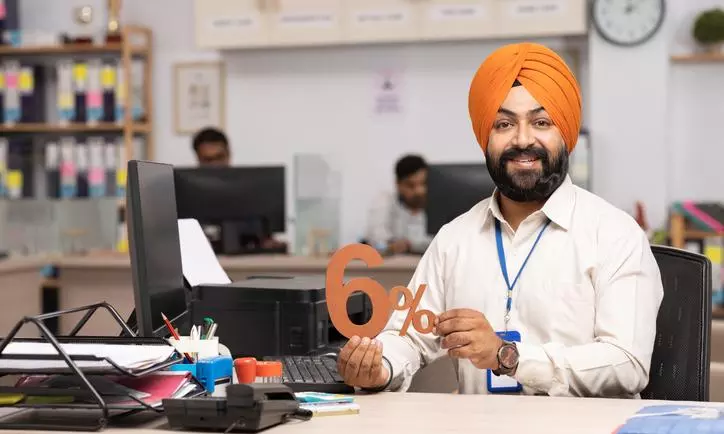
How taxtech is not only helping MSMEs with GST, but also unlocking credit
While underwriting by big banks relies on collateral or credit scores, taxtech firms use GST invoices to show real-time revenue, vendor status and payment cycles

Ram Prasad, 54, of Rae Bareli in Uttar Pradesh is the sole owner of a kirana — a neighbourhood grocery store. He doesn’t need software to track inventory. He knows by heart how many shampoo sachets are left and which brand of wheat flour his customers prefer.
Across India, there are millions like him — owners of petty shops, pharmacies, electrical stalls — running on muscle memory and mental math, who were long resistant to technology.
But now, having to pay Goods and Services Tax (GST), and dealing with the accompanying processes, they are getting more tech-savvy than even urban professionals.
Challenge for MSMEs
This shift hasn’t been easy. India’s GST regime may have streamlined indirect taxation, but for the country’s 64 million micro, small and medium enterprises (MSMEs), navigating its layers remains a daily challenge.
That’s where taxtech comes in — a fast-growing category of fintech platforms focused on not only demystifying GST compliance, but also using it to assess creditworthiness and enable access to loans.
Also read | Meta launches standalone AI app to compete with OpenAI's ChatGPT
Startups like Pice, ClearTax and Avalara India offer taxtech tools to manage invoicing, input tax credits and payment filings. They're also using AI to reduce the possibility of errors and double taxation.
And, a few like Pice are going beyond that to connect MSMEs with formal lenders such as banks and non-banking finance companies (NBFCs) for working capital loans.
Ledger to loan
"GST data is a goldmine,” said Sandipan Mitra, co-founder and CEO of Pice, a Bengaluru-based startup that helps MSMEs manage and pay invoices digitally.
“We started with the pain point of invoice management — keeping everything in one place and making payments from a single dashboard. But once we saw how our system was tracking transaction history and cash flows, we realised this data could get MSMEs access to credit," he told The Federal.
'Taxtech' refers to a fast-growing category of fintech platforms focused on not only demystifying GST compliance, but also using it to assess creditworthiness and enable access to loans.
Pice, which began operations in 2021, already has over 80,000 MSMEs using its platform. The majority of its users include retail stores, pharmacies and FMCG distributors. “These are people who might not have traditional credit histories but are doing substantial volumes of business,” said Mitra. “They’re digital-savvy but underserved by banks. So, we're hoping to change that.”
Pice has partnered with two or three NBFCs and is in talks with banks to provide working capital loans. These are often small-ticket loans, ranging from Rs 50,000 to a few lakhs and are used to manage cash flow gaps or to buy inventory during high-demand seasons like Diwali or Christmas.
Credit and cash flow
This is a key shift in the way credit is assessed. Traditional underwriting by big banks relies heavily on collateral or long-standing credit scores, provided by the likes of credit bureaus like CIBIL or Experian.
Also read | AI may not be running Indian banks yet, but it is their smartest assistant
Now, fintech platforms are pushing the envelope using GST invoices so that banks can see real-time revenue, vendor relationships and payment cycles.
“Banks and NBFCs have historically struggled to underwrite small businesses due to lack of visibility; to assess their credit-worthiness,” said Deepak Sharma, a former Chief Digital Officer at Kotak Mahindra Bank and now a CXO advisor.
“But platforms like Pice that sit on top of transaction data are enabling more dynamic, cash-flow-based lending. This is crucial for India’s MSMEs, who often don’t have formal financial footprints," Sharma told The Federal.
Sharma, who now advises several fintechs, sees a big future in GST-linked credit products. “It’s no longer just about digitising tax filing. The next step is monetising that data responsibly, with consent, to create financial inclusion.”
Swiping into compliance
While Pice is powering GST-linked lending, ClearTax is playing its part in making tax filing smoother and smarter. It claims it's helping more than 6 million users with automated filing.
ClearTax's systems also use AI for error detection, and notice management.
"There is also an AI assistant for simplified tax calculations and prefilled data to reduce manual entry errors," Archit Gupta, founder and CEO, told The Federal.
The challenges
The GST journey, however, remains fraught with challenges. Many MSMEs still depend on chartered accountants for filing, and digital literacy varies widely across regions.
But entrepreneurs like Mitra remain optimistic.
